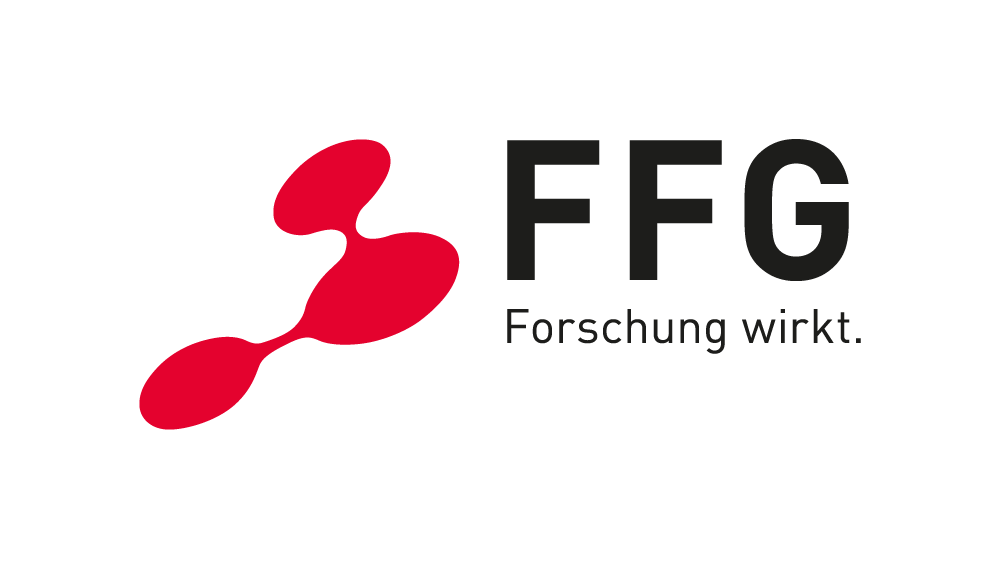TechCalc
Supporting Engineers in System Design
Developers know: Some calculations must be performed repeatedly in different configurations. Therefor, a tool would be useful that provides individually required functionalities and calculation options, automatically calculates various parameter configurations, and even supports in the design process of complex systems.
TechCalc is exactly such a modular expandable tool. It not only offers analytical and numerical calculations of all kinds. It also provides their extensive analysis including visualization and automated report creation, interfaces to other tools, and parameter history storage.
This enables a more efficient, sustainable, and more accurate daily development work.
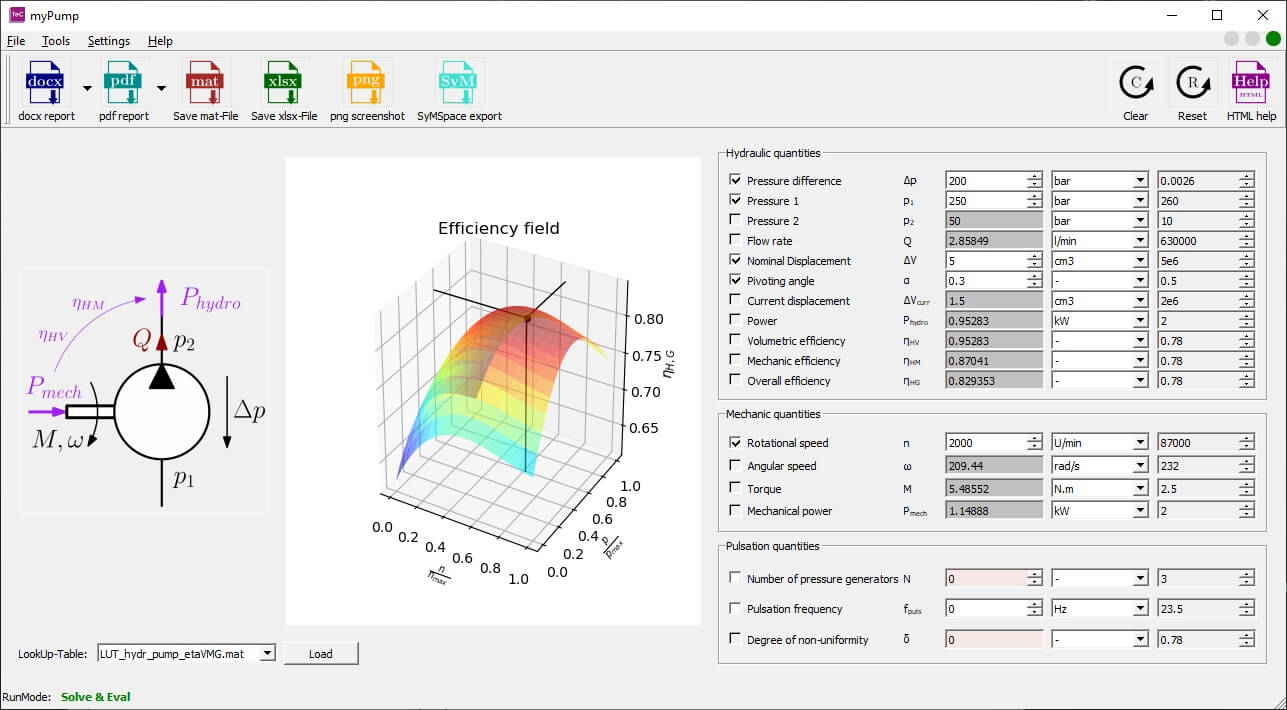
Figure: Efficiency factor calculation for a pump model.
Below, a few representative highlights of TechCalc are listed:
The System-Designer
If several individual components („Knowledge Containers“) are necessary for the corresponding project, they can easily be interconnected. This enables an efficient system design, reducing development time tremendously.
The visualization of unsolved parameter-equation dependencies (see Figure) illustrates the actual design study and thus supports the design process.
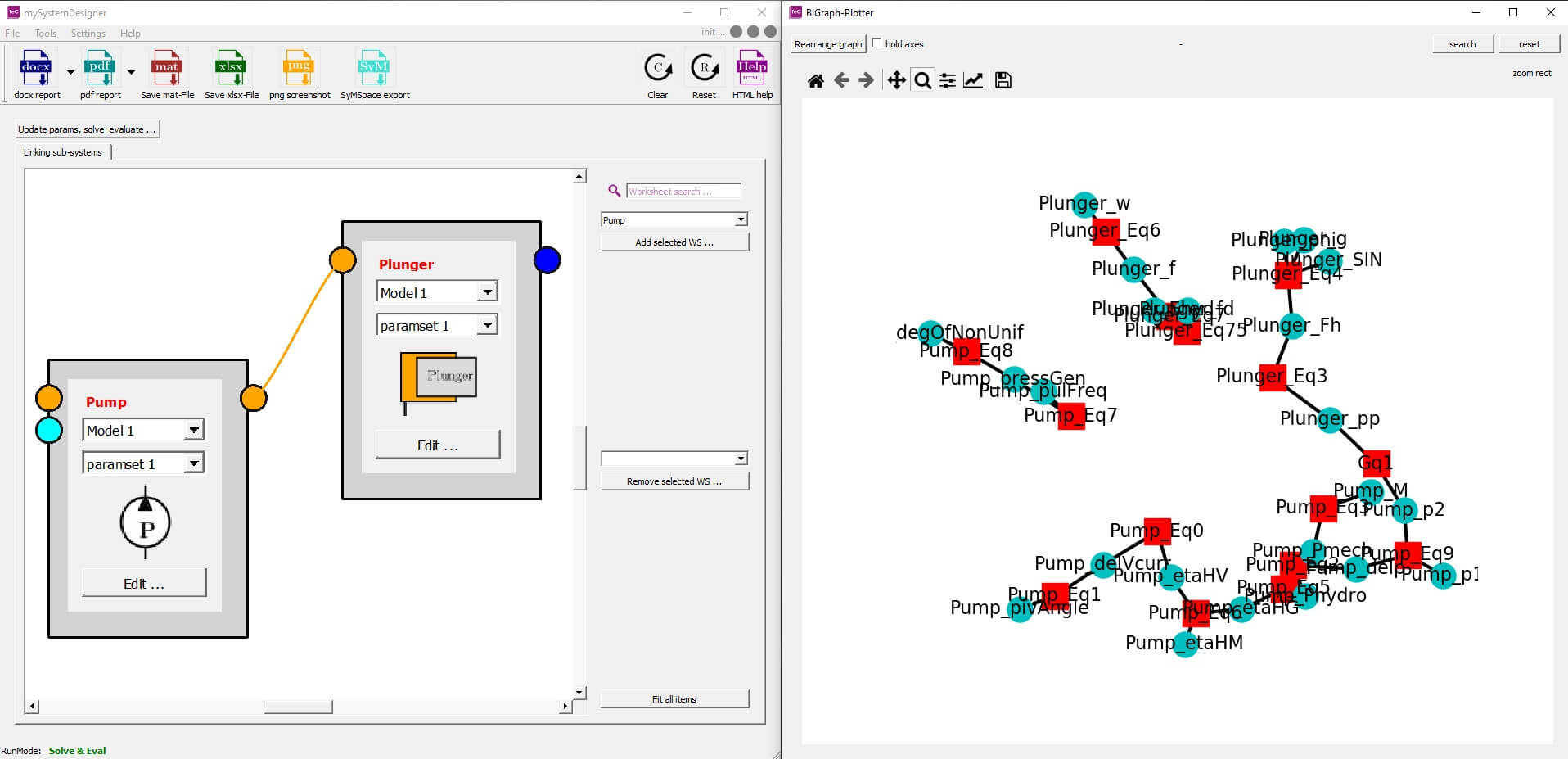
Figure: System-designer (left) and parameter-equation dependencies (right).
Model-Switch
The dimensioning of complex systems often requires several models with different degrees of complexity. The first attempts may be based on simple models, enabling the search of reasonable parameter spaces. At a more advanced stage, the system can subsequently be described more accurately by more complex models. In TechCalc it is possible to switch between these models in a simple way.
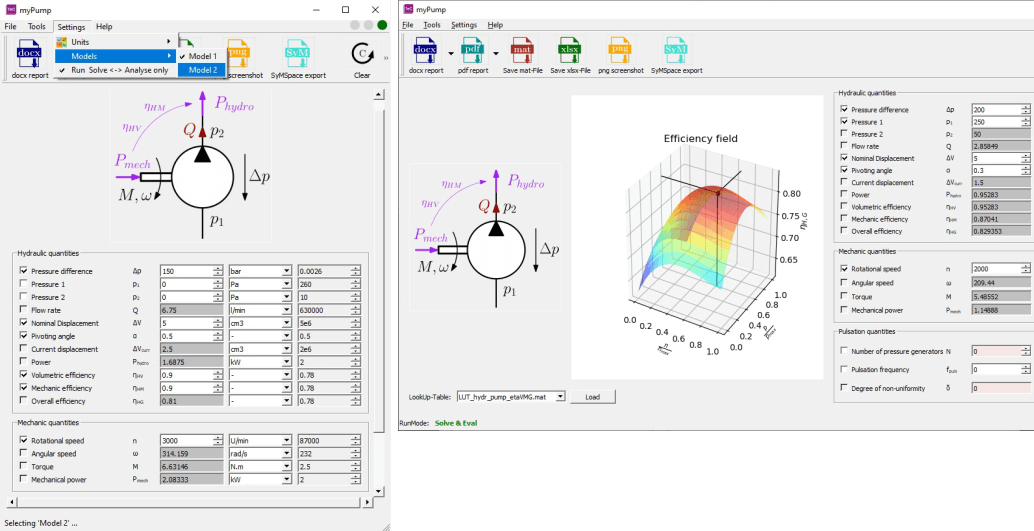
Figure: Pump modell without using a look-up table (left) and using a look-up table (right).
Python Scripts
The embedded Python console supports the integration of calculations from simple functions to complex scripts. The scripts may also use predefined functions for more flexibility. The respective functions and variables can be stored in an internal database for later re-use.
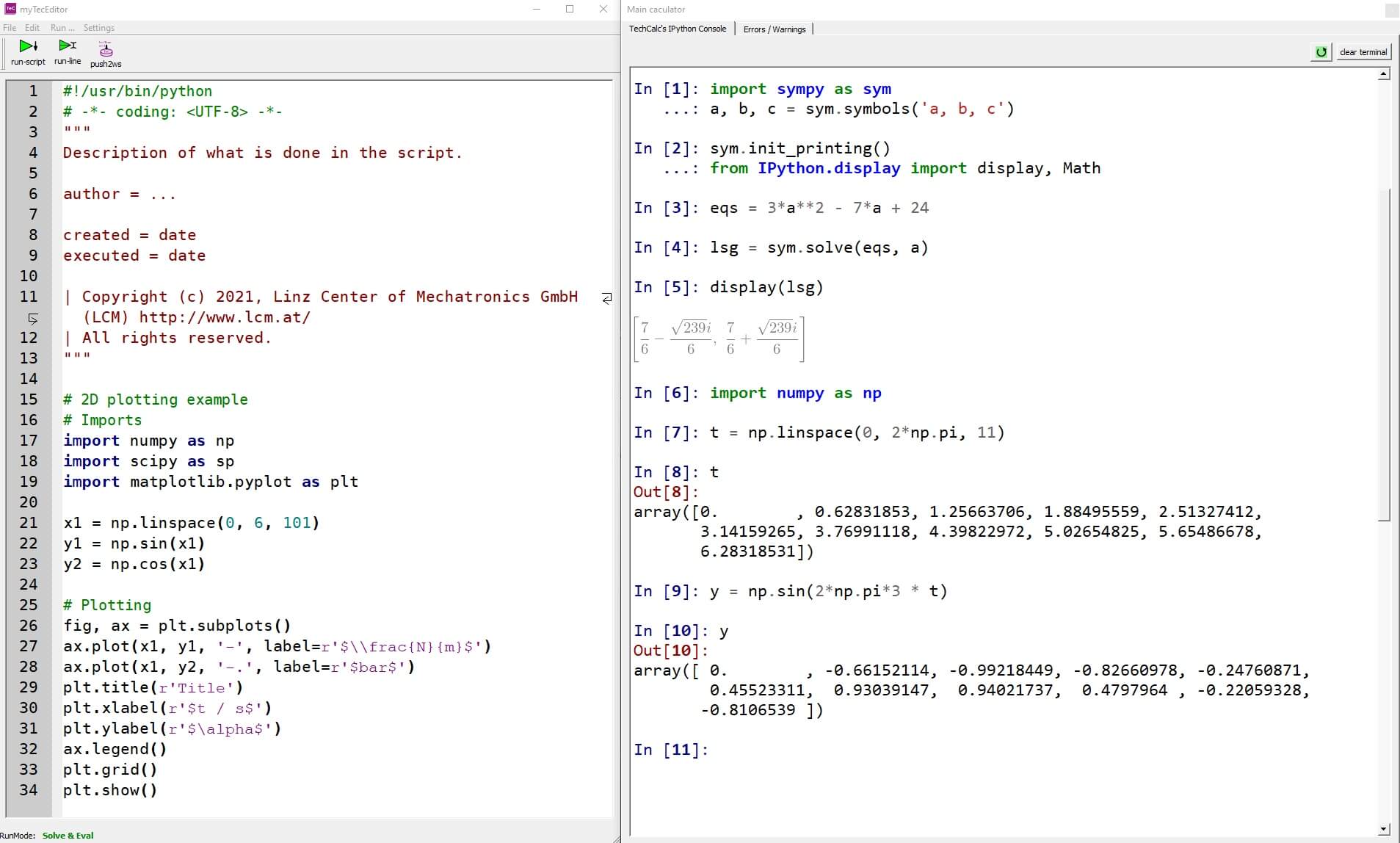
Figure: Python-script (left) and Python-console (right).
System-Design and Digitalization
TechCalc also supports digital product development. From the design to the detailed calculation, prototype tests, up to the condition monitoring of the finished product, different model hierarchies needed in the technical calculations can be applied.
This consistency is an essential part of the increasing importance of the so-called “Digital Thread”.
TechCalc is fully networkable and can easily be connected to other tools, such as the DesignSpace.
Being up-to-date
TechCalc is continuously being further developed. We are currently working on the following challenges:
- Holistic design process via integration of needed tools such as Requirements-Tools, CAD, Finite Elements (FE, e.g. HOTINT), dynamic calculations, optimization (SyMSpace), …
- Fast, efficient and error-free system design
- Full or semi-automatic assembly of systems
- Topology-open system design
- Optimization of systems or sub-systems (SyMSpace)
- Data consistency between different tools
- Evaluation of systems and solutions with respect to their perfor-mance under given boundary conditions

